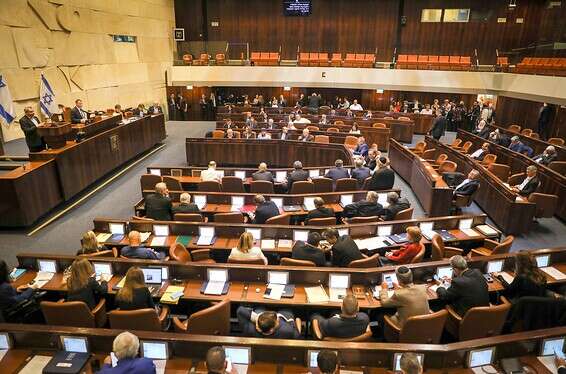What is the meaning of secret elections? • Who has the right to vote? • What is a mandate? • Third time: Glossary from A to Z for the 23rd Knesset elections
Election cards for Knesset elections // Photo: Oren Ben Hakun
Percentage Blocking - The minimum number of votes a list must receive in elections to win the Knesset delegation. The blocking rate is currently 3.25% of all eligible votes (144,197 votes in the 22nd Knesset election). Accordingly, only parties that receive more than 3.25% of the vote will be represented in the Knesset's four MKs. The new right lost only about 1,400 votes to the Knesset in the 21st Knesset. In the September elections, 39 lists did not pass the ballot, and 126,704,000 Voices went down the drain.
Secret Elections - To ensure electoral fairness and prevent any attempt to influence voters how to vote, the voting secrecy behind the curtain is strict. The pointer is required to enclose the envelope of the list it supports, close it, and embed it into the ballot box. The law provides for penalties for any attempt to influence citizens for those who vote.
Cast: Maayan Adam, Valerie Ortenberg, Director: Lior Peleg, Screenplay: Lior Peleg, Eli Barak, Photography: Moshe Ben Simhon, Production: Shir Schukmacher, Editing: Eden Barel
Surplus agreement - An agreement signed between two parties before the elections, designed to increase their chances of receiving additional seats from the surplus votes remaining after the distribution of the complete seats. A party that does not pass the blocking percentage does not participate in the distribution of additional mandates. In the upcoming elections, six surplus agreements were signed: the Likud with the right, blue and white with the Labor Bridge, Meretz, and Shas with Torah Jewry.
Central Election Committee - A committee headed by a Supreme Court judge (now Justice Neil Handel), in which members of all the parties represented in the outgoing Knesset are members. The committee is responsible for conducting the elections for the Knesset and its regularity. On election day, the commission employs about 150,000 workers nationwide, which are split into 19 regional committees across the country.
Election right - the basic right of every citizen who is 18 years of age to take part in the elections and vote in the polls. In the current elections the number of voters is 6,453,255. Since the September elections, the number of voters has increased by more than 113,000. Each voter must sign the ballot box to which he belongs with an ID card to exercise his right.
Bader Ofer Law - A law that was enacted many years ago and named by MKs Avraham Ofer of Mapai and Yochanan Bader of Liberty. The law gives the big parties an advantage over distributing the remaining mandates after the first partition of the mandates. ", That is, the number of eligible votes received list + number of seats + 1.
Plenary of the Central Election Commission - a body composed of representatives of all parties in the Knesset according to their relative power. Its job is to discuss applications for rejection of lists of candidates in the Knesset. In the current elections, the committee rejected the participation of MK Hiba Izbak (joint list) and Larissa Trimbobler, wife of the murderer Yigal Amir, who murdered Prime Minister Yitzhak Rabin. The High Court rejected these decisions and approved their participation in the elections.
Mandate - The number of votes a list must receive in the elections in order to win the representation of one MK in the Knesset. In the 22nd Knesset elections, the vote was 35,917. This calculation is done by dividing the number of legitimate votes of the parties participating in the distribution of seats to 120 MKs. .
Dual envelopes - voting about 280 voters with no voting rights in the polling stations in their area of residence, especially regular service and reserve soldiers, as well as hospital patients, prisoners and detainees, are restricted to voting at wandering polls and official representatives of Israel abroad. Double envelope to ensure there is no duplication and they will vote twice.On the outer envelope indicate their name and identity card.The double envelope counting takes longer and is one of the factors that delays the publication of the final results.

